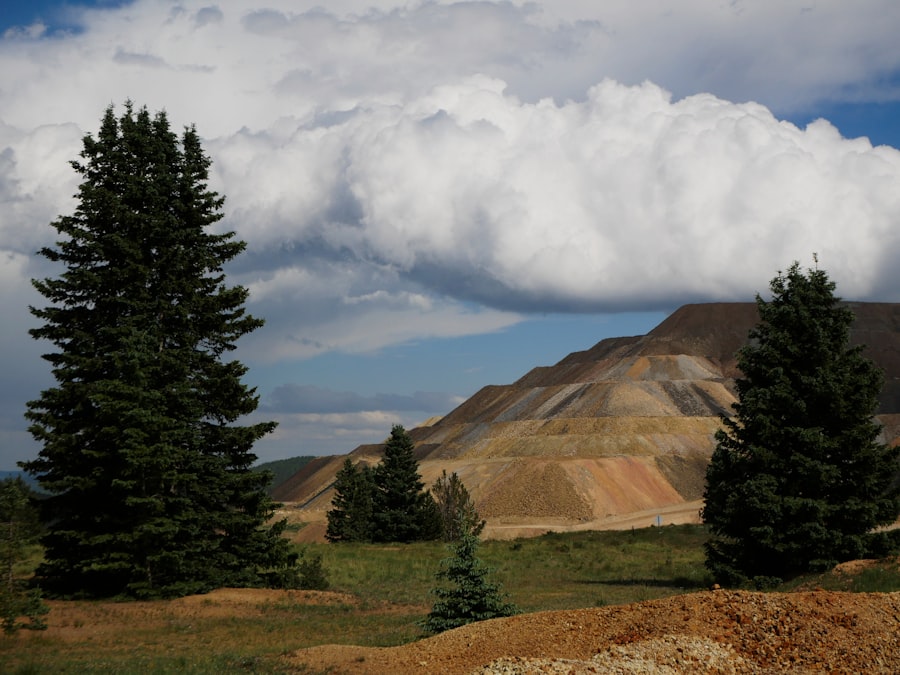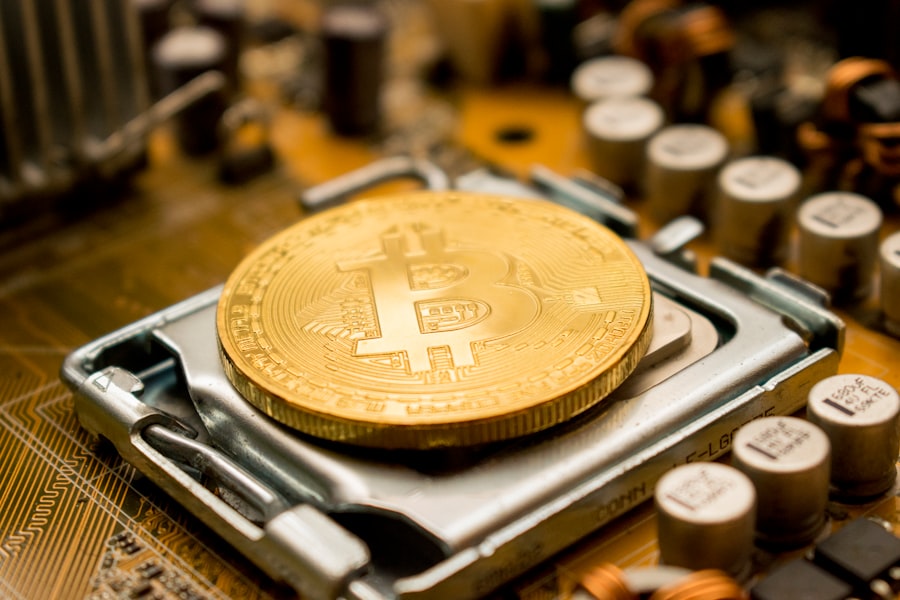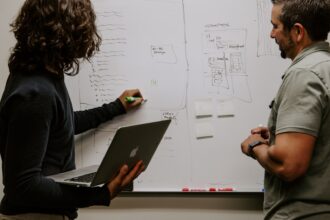Gold mining has long been a lucrative industry, attracting investors and laborers alike with the promise of wealth. However, beneath the glimmering surface of gold lies a troubling reality marked by human rights abuses. The extraction of this precious metal often comes at a significant cost to vulnerable populations, particularly in developing nations where regulatory frameworks may be weak or nonexistent.
As the demand for gold continues to rise, so too do the reports of exploitation, violence, and environmental degradation associated with its mining. This article seeks to explore the multifaceted relationship between gold mining and human rights abuses, shedding light on the often-overlooked consequences of this global industry. The intersection of gold mining and human rights is complex and deeply intertwined with issues of poverty, inequality, and corporate greed.
While gold is celebrated for its economic value, the human toll it exacts on communities involved in its extraction is frequently ignored. From indigenous populations facing displacement to children forced into labor, the ramifications of gold mining extend far beyond the mines themselves. Understanding these dynamics is crucial for fostering a more ethical approach to gold sourcing and consumption.
Key Takeaways
- Gold mining often leads to severe human rights abuses, especially affecting indigenous communities.
- Child labor and forced labor remain prevalent issues within the gold mining sector.
- Environmental damage from gold mining poses significant health risks to local populations.
- Multinational corporations and governments frequently contribute to or overlook these abuses.
- Ethical sourcing and consumer awareness are crucial for promoting responsible gold mining practices.
The Impact of Gold Mining on Indigenous Communities
Indigenous communities around the world have been disproportionately affected by gold mining activities. Often residing in areas rich in natural resources, these groups find their ancestral lands encroached upon by mining companies seeking to exploit the earth’s riches.
For many indigenous peoples, their connection to the land is not merely economic; it is spiritual and cultural. The destruction of sacred sites and traditional territories can result in a deep sense of loss and dislocation. Moreover, the influx of mining operations can lead to social disruption within indigenous communities.
As outsiders arrive in search of work or profit, traditional ways of life are often undermined. The introduction of new economic activities can create tensions and exacerbate existing inequalities. In some cases, indigenous leaders have bravely stood up against mining companies, advocating for their rights and seeking to protect their lands.
However, these efforts are frequently met with resistance, intimidation, or violence, highlighting the precarious position of indigenous communities in the face of powerful corporate interests.
Child Labor and Forced Labor in Gold Mining

The issue of child labor in gold mining is a harrowing reality that persists in many regions around the globe. Children are often drawn into this dangerous work due to poverty and lack of educational opportunities. In artisanal and small-scale mining operations, children may be found working alongside adults, engaging in labor that exposes them to hazardous conditions without adequate safety measures.
The physical toll on these young workers can be severe, leading to long-term health issues and stunted development. Forced labor is another grim aspect of gold mining that cannot be overlooked. In some instances, individuals are coerced into working in mines under threat of violence or economic hardship.
Trafficking networks may exploit vulnerable populations, luring them with false promises of employment only to trap them in cycles of exploitation. The lack of oversight in many mining regions allows these abuses to flourish unchecked, perpetuating a cycle of poverty and suffering that affects entire communities.
Environmental Destruction and Health Risks for Local Communities
| Environmental Issue | Health Risk | Affected Population | Reported Cases | Source/Region |
|---|---|---|---|---|
| Air Pollution (Industrial Emissions) | Respiratory Diseases (Asthma, COPD) | 150,000 | 12,000 annually | Urban Industrial Areas, China |
| Water Contamination (Chemical Runoff) | Gastrointestinal Illnesses, Cancer | 80,000 | 5,500 annually | Rural Farming Communities, India |
| Deforestation | Malaria and Vector-borne Diseases | 60,000 | 3,200 annually | Amazon Basin, Brazil |
| Soil Degradation (Mining Activities) | Heavy Metal Poisoning | 25,000 | 1,100 annually | Mining Regions, South Africa |
| Waste Dumping (Toxic Waste) | Skin Diseases, Cancer | 40,000 | 2,000 annually | Urban Slums, Nigeria |
The environmental impact of gold mining is profound and far-reaching. The extraction process often involves the use of toxic chemicals such as mercury and cyanide, which can contaminate local water sources and soil. This pollution poses significant health risks to nearby communities, leading to a range of ailments from skin diseases to neurological disorders.
The degradation of ecosystems also threatens food security as fish populations decline and agricultural land becomes unviable. In addition to immediate health concerns, the long-term environmental consequences can be devastating. Deforestation associated with mining operations disrupts local biodiversity and contributes to climate change.
As habitats are destroyed, species face extinction, further destabilizing ecosystems that communities rely on for their livelihoods. The struggle for clean water and safe living conditions becomes an uphill battle for those living in proximity to gold mines, highlighting the urgent need for responsible mining practices that prioritize environmental stewardship.
The Role of Multinational Corporations in Human Rights Abuses
Multinational corporations play a significant role in perpetuating human rights abuses within the gold mining industry. Often driven by profit maximization, these companies may prioritize financial gain over ethical considerations, leading to exploitative practices that harm local populations. In many cases, corporations operate in countries with lax regulations or enforcement mechanisms, allowing them to sidestep accountability for their actions.
Furthermore, the complex supply chains associated with gold mining can obscure responsibility. By outsourcing operations or partnering with local firms, multinational corporations can distance themselves from direct involvement in human rights violations. This lack of transparency makes it challenging for consumers and advocacy groups to hold companies accountable for their practices.
As a result, the cycle of exploitation continues unchecked, with vulnerable communities bearing the brunt of corporate greed.
Government Involvement and Complicity in Human Rights Violations

Government involvement in gold mining often exacerbates human rights abuses rather than mitigating them. In some cases, governments may prioritize economic development over the protection of human rights, granting mining licenses without adequately considering the impact on local communities. Corruption can further complicate matters, as officials may accept bribes from mining companies in exchange for favorable treatment or oversight.
Additionally, state security forces are sometimes deployed to protect mining interests at the expense of local populations. Reports have surfaced of violence against community members who resist mining operations or advocate for their rights. This complicity between governments and corporations creates an environment where human rights violations can flourish without consequence.
The need for stronger regulatory frameworks and accountability mechanisms is critical to ensuring that governments uphold their responsibility to protect the rights of their citizens.
The Lack of Accountability and Transparency in the Gold Mining Industry
The gold mining industry is often characterized by a troubling lack of accountability and transparency. Many companies operate with minimal oversight, making it difficult for stakeholders to assess their practices or hold them accountable for abuses. This opacity extends to supply chains as well; consumers may unknowingly purchase gold sourced from mines that exploit workers or harm the environment.
Efforts to improve transparency have emerged in recent years, but challenges remain. Initiatives such as the Extractive Industries Transparency Initiative (EITI) aim to promote openness in resource extraction sectors; however, participation is voluntary and not universally adopted. Without robust mechanisms for monitoring and reporting on human rights practices within the industry, abuses are likely to persist unchecked.
Efforts to Address Human Rights Abuses in Gold Mining
In response to growing awareness of human rights abuses in gold mining, various organizations and initiatives have emerged to advocate for change. Non-governmental organizations (NGOs) play a crucial role in raising awareness about these issues and pushing for reforms at both local and international levels. Campaigns aimed at promoting ethical sourcing practices have gained traction among consumers who seek to make informed choices about their purchases.
Additionally, some companies have begun implementing responsible sourcing policies that prioritize human rights considerations throughout their supply chains. Certification programs aimed at ensuring ethical practices in gold mining are also gaining popularity; however, challenges remain regarding enforcement and verification. Collaborative efforts between governments, corporations, and civil society are essential for creating a more equitable gold mining industry that respects human rights.
The Importance of Ethical and Responsible Sourcing of Gold
The importance of ethical and responsible sourcing of gold cannot be overstated. As consumers become increasingly aware of the social and environmental implications of their purchases, there is a growing demand for transparency in supply chains. Ethical sourcing practices not only benefit local communities but also enhance brand reputation and consumer trust.
Companies that prioritize responsible sourcing demonstrate a commitment to social responsibility and sustainability. By investing in fair labor practices and environmentally friendly extraction methods, they can contribute positively to the communities from which they source gold. This shift towards ethical sourcing represents a critical step toward mitigating human rights abuses within the industry while promoting economic development that benefits all stakeholders involved.
The Role of Consumers in Combatting Human Rights Abuses in Gold Mining
Consumers hold significant power in combatting human rights abuses within the gold mining industry. By making informed choices about their purchases, individuals can drive demand for ethically sourced products and encourage companies to adopt responsible practices. Awareness campaigns aimed at educating consumers about the implications of their buying decisions can foster a culture of accountability within the industry.
Moreover, consumers can support organizations that advocate for human rights and environmental protection in gold mining regions. By choosing to invest in brands that prioritize ethical sourcing or contribute to initiatives aimed at improving conditions for workers, consumers can play an active role in promoting positive change. Collective action among consumers has the potential to influence corporate behavior significantly, creating a ripple effect that extends beyond individual purchasing decisions.
Moving Towards a More Ethical Gold Mining Industry
The path toward a more ethical gold mining industry is fraught with challenges but not insurmountable. By addressing human rights abuses head-on and fostering collaboration among stakeholders—governments, corporations, NGOs, and consumers—progress can be made toward creating a more equitable system that respects human dignity and environmental sustainability. As awareness grows regarding the implications of gold mining on vulnerable populations and ecosystems, there is an opportunity for transformative change within the industry.
Emphasizing ethical sourcing practices and holding corporations accountable for their actions will be crucial steps toward ensuring that future generations can enjoy the benefits of gold without sacrificing fundamental human rights or environmental integrity. Ultimately, it is through collective action and commitment to responsible practices that a brighter future for all involved in gold mining can be achieved.
Gold mining has long been associated with various human rights abuses, including forced labor and environmental degradation. A related article that delves deeper into these issues can be found on In The War Room, which discusses the impact of gold mining on local communities and the urgent need for reform. For more information, you can read the article [here](https://www.inthewarroom.com/).
WATCH THIS! The Secret War for Africa’s Gold: How Private Armies Fund Global Conflict
FAQs
What are human rights abuses in gold mining?
Human rights abuses in gold mining refer to violations of fundamental rights and freedoms of individuals involved in or affected by gold mining activities. These abuses can include forced labor, child labor, unsafe working conditions, displacement of communities, environmental degradation, and lack of fair compensation.
Where do human rights abuses in gold mining commonly occur?
Human rights abuses in gold mining are most commonly reported in countries with weak regulatory frameworks, limited enforcement of labor laws, and high levels of informal or artisanal mining. Regions in parts of Africa, Latin America, and Asia are often highlighted for such issues.
Who is most affected by human rights abuses in gold mining?
The most affected groups include artisanal and small-scale miners, indigenous communities, women, and children. These groups often face exploitation, hazardous working conditions, and displacement without adequate consultation or compensation.
What are the environmental impacts linked to human rights abuses in gold mining?
Environmental impacts such as deforestation, water pollution from toxic chemicals like mercury and cyanide, and soil degradation can harm local communities’ health and livelihoods, contributing to broader human rights concerns.
How can companies address human rights abuses in gold mining?
Companies can implement responsible sourcing policies, conduct due diligence to identify and mitigate risks, engage with local communities, ensure fair labor practices, and support transparency and accountability throughout their supply chains.
What role do governments play in preventing human rights abuses in gold mining?
Governments are responsible for establishing and enforcing laws and regulations that protect workers and communities, monitoring mining activities, promoting sustainable practices, and ensuring that mining companies comply with human rights standards.
Are there international standards related to human rights in gold mining?
Yes, international frameworks such as the United Nations Guiding Principles on Business and Human Rights, the OECD Due Diligence Guidance for Responsible Supply Chains of Minerals, and various industry certification schemes provide guidelines to prevent and address human rights abuses in mining.
What can consumers do to help reduce human rights abuses in gold mining?
Consumers can support ethically sourced gold by purchasing from certified suppliers, advocating for transparency in supply chains, and raising awareness about the social and environmental impacts of gold mining.




